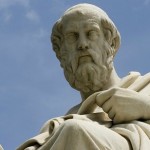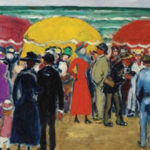We run our website the way we wished the whole internet worked: we provide high quality original content with no ads. We are funded solely by your direct support. Please consider supporting this project.
What is the significance of 2 Chronicles 7:12–14?
The Lord says to Solomon, “When I shut up the heavens so that there is no rain, or command the locust to devour the land, or send pestilence among my people, if my people who are called by my name humble themselves, pray, seek my face, and turn from their wicked ways, then I will hear from heaven, and will forgive their sin and heal their land.”
This well-known verse describes the Lord’s willingness to reverse judgment in the light of people’s repentance (cf. Jonah 4:2; Joel 2:13–14). When God judges his people by shutting up the heavens, he is willing to alter his course of action, relent from his punishment, and heal the people if they will pray, seek his face, and turn from their wicked ways. This is a picture of a God who is supremely responsive to the ever-changing circumstances of life in which free creatures are involved, not the picture of a God who eternally knows reality as a frozen block of unalterable facts.
Category: Q&A
Tags: Open Theism, Q&A
Topics: Open Theism
Verse: Chronicles 7
Related Reading

Is Your Christianity Shaped by Plato or the Bible?
The Timaeus is a work that Plato wrote that addresses the questions: “What is that which always is and has no becoming, and what is that which becomes but never is?” (Tim. 28a)? These questions contain one of the most influential – and, in my opinion, one of the most disastrous – philosophical ideas of…

What is the significance of 1 Chronicles 21:7–13?
The Lord gives David three options of how Israel may be judged. “Three things I offer you; choose one of them, and I will do it to you.” Paralleling 2 Samuel 24:12–16, this passage reveals that the Lord gives people genuine alternatives and then responds to their choices. If the future is unalterably settled in…

How do you respond to Ephesians 1:4-5?
Question: Ephesians 1 refers to believers as predestined before the foundation of the world. How do you reconcile this with your view that free actions of people (like choosing to believe in Christ) can’t be predestined or even foreknown ahead of time? Answer: It took three hundred years before anyone in Church history interpreted the…

Lord Willing? Part 2
In Part 2 of Greg’s interview of Jessica Kelley about her book Lord Willing?, they discuss the theology that helped Jessica through her son Henry’s illness and death. You can find Part 1 of the interview here, and part 3 here.

Two Ancient (and Modern) Motivations for Ascribing Exhaustively Definite Foreknowledge to God
A historic overview and critical assessment Abstract: The traditional Christian view that God foreknows the future exclusively in terms of what will and will not come to pass is partially rooted in two ancient Hellenistic philosophical assumptions. Hellenistic philosophers universally assumed that propositions asserting’ x will occur’ contradict propositions asserting’ x will not occur’ and…

How can people who believe the open view trust a God who doesn’t control the future and doesn’t know for sure what will happen?
It’s true that according to the open view of the future things can happen in our lives which God didn’t plan or even foreknow with certainty (though he always foreknew they were possible). In this view, trusting in God provides no assurance that everything that happens to us will reflect his divine purposes, for there…
